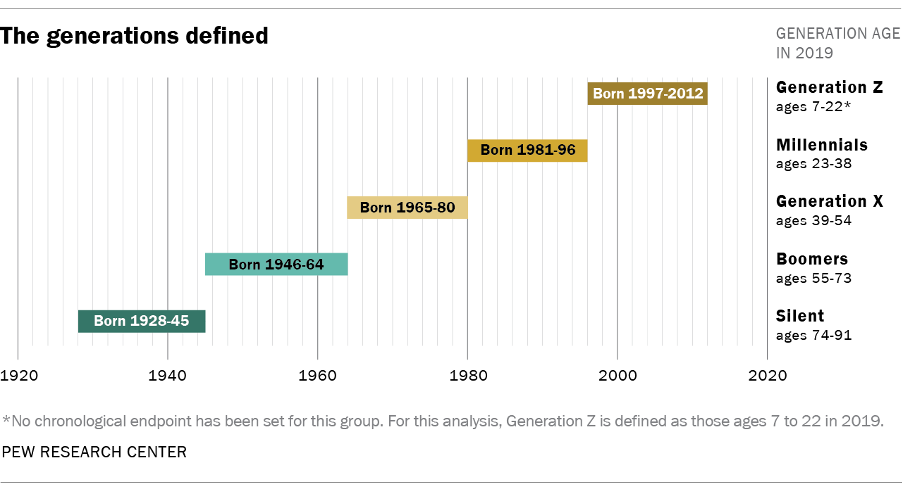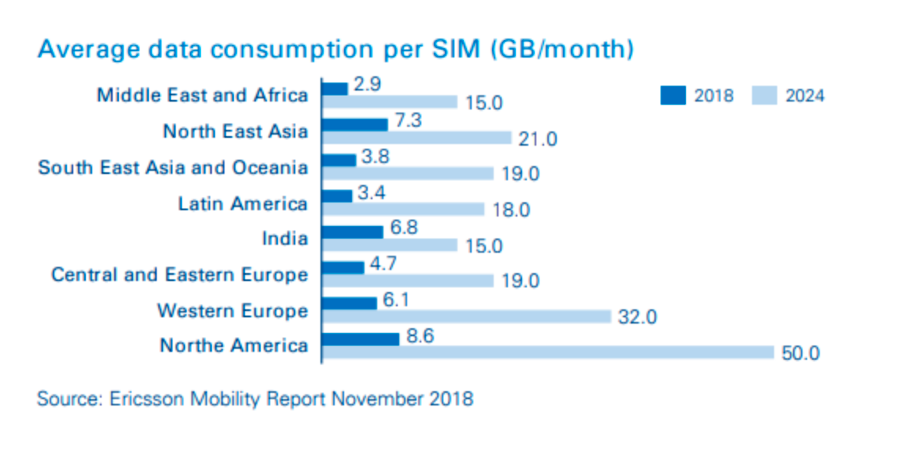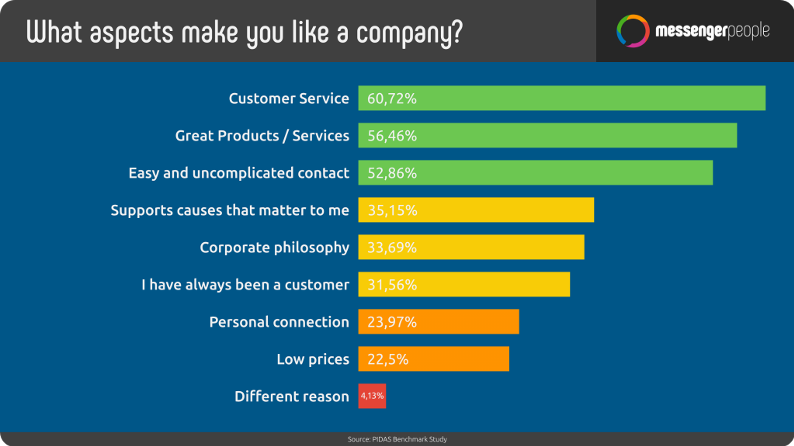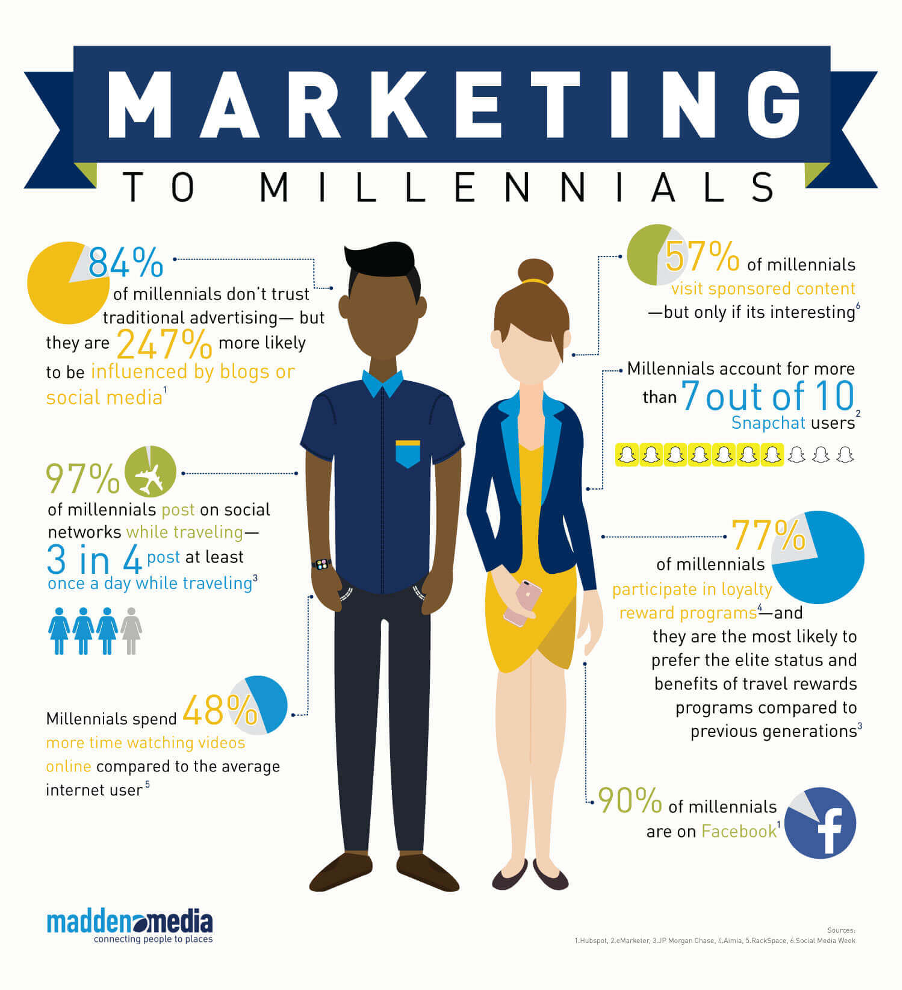Future of mobile network providers: * Millennials have entered the chat *
Millennials are reaching their prime spending years. They are now more than 2.5 billion strong and, by 2025, they will represent 75% of the global workforce. With more than $8 trillion in disposable income, Millennials have a substantial impact on shaping the future of the mobile network industry (or any major industry for that matter).
But who Millennials are exactly? Millennials (also known as Generation Y) are the demographic cohort born between 1981 and 1996. They are Internet empowered, tech-savvy, cost-conscious and strongly opinionated. What makes them different from preceding generations is that “they were born with smartphones in their hand”. They find it difficult to remember life without the Internet and 74% of them admits they would not be able to survive a single day without their smartphone.
What implications does this have on mobile network providers?
As a business owner or executive, you are aware of the continuously increasing economic influence of this generation. But do you know how to react to that effectively? Do you know how to gain and retain Millennials’ trust? Is your value proposition designed to attract and connect with them? Millennials are often a subject of jokes and funny memes, but businesses should make an effort to understand them, shake off the stereotypes and take them a tiny bit more seriously. Some aspects are particularly important for Millennials while choosing a mobile network provider.
Personalisation
Long story short: personalisation is key. Telcos need to ensure that they don’t offer one-size-fits-all services. Millennials strive for customisable and flexible customer experience. Did you know that most of the younger generation is data-oriented? Why would you send an SMS to your friend if you can contact them via WhatsApp or Facebook Messenger? Not only you can throw in a funny GIF but also track if your message was sent, received or read. So, let your customers choose how much data they want instead of presenting them with a few predefined options. Otherwise, they will look for a more flexible offering elsewhere.
Do you want to know a fun fact about Millennials? They chose personalisation over their personal data privacy. It may come as a surprise, especially having read one of our latest posts Big Data: The Good, The Bad and The Ugly. But research shows that 76% of Millennials would be eager to let providers use their data to receive recommendations that are tailored to their specific needs and preferences. Moreover, 59% of them are willing to spend more to get a plan specifically customised to their needs across voice, data, entertainment and other personalised services.
Transparency
Having always had information at their fingertips, Millennials are accustomed to knowing aplenty about products, services and accompanying processes. Therefore, they want to engage with brands that are open and honest. This socially conscious demographic surely questions everything before making a purchase. Is this product made of ethically sourced materials? What about water, energy, and waste management? Are the employees of this company treated well and paid fair wages? Does this company commit to any social causes? If your answers to those questions are ‘no’, Millennials may not be interested in your brand. Ha, if only! They will go to social media and make sure none of their friends is interested either.
Millennials want to feel a part of the brand. If you wish to build up trust, and, eventually, loyalty, show them what you do. Give them some behind-the-scenes updates by e.g. streaming live events or starting conversations on topics that are important to them (and you) on your social media platforms. And most importantly, remember to own your mistakes. Instead of hiding them, explain and apologise. No one is ideal, not even your brand. It will help you to increase customer trust and show your integrity. Who knows, maybe they will even help you solve the problem. Millennials will compensate your efforts in being transparent by sharing positive word-of-mouth with their network and, potentially, become your brand advocates.
Customer service
If you thought that Millennials were hmm… a unique generation, then let me tell you this: they despise phone calls. Back in the days, customers were used to doing service in one or two ways. In person or on the phone. So, what’s wrong with phone calls if Millennials practically live on their smartphones? Well, first of all, they think it’s too time-consuming. Not only they have to wait on hold for ages listening to the same song over and over again, but once they get to speak to a customer service agent, they have to go through the niceties of verbal conversation. You know, all the “good mornings”, “thank yous”, “goodbyes” and rest of the unnecessary small talk. Secondly, they just find phone calls inconsiderate. If they receive an email, they can respond at their convenience. But if someone calls them, they have to respond instantly.
The young generation wants the customer service to be fast, reliable and accessible 24/7. 70% of Millennials expect self-service from the company they do business with. They are happy to solve their problems with the help of FAQ when they are given the option. Only after they have been unable to find answers via self-service will they turn to front-line customer service agents. And even then, a phone call will not be their first choice.
Millennials prefer digital service channels such as live chat (32%) and mobile apps (27%). Additionally, 81% of them use social media to interact with a company’s customer service, so make sure you know whether your customers prefer Facebook or Instagram. Since they seek support via these (and many more) digital platforms, be prepared to offer omnichannel customer support and, what’s even more important, a seamless switch between them. Remember, Millennials are willing to sacrifice their personal data to receive personalised customer experience. They, therefore, expect you to know their service history whenever they reach out so get your Millennial’s profile in your intelligent CRM before asking them any questions.
Marketing
You now have an idea of what your offering should look like. But how do you ensure Millennials get to know about it? There are a few things you can do to promote your brand. But one thing that you’ll love most about marketing to Millennials is that it may be cheaper than you think.
The time Millennials spend on social media daily varies from 3 hours and 29 minutes in South America, through 2 hours and 6 minutes in North America to 1 hour and 53 minutes in Europe. And that’s just social media. Add video streaming, messaging, using entertainment apps or just simply browsing the internet and you may end up with an average of 9 hours a day online. So, the primary marketing opportunities are right there. The digital world also allows you to choose your main audience, personalise your messaging (yay, personalisation!) and track the results of your campaigns making them extremely effective and affordable.
Your social media presence is also a great way to win over the Millennial audience. It’s a place where you can build your brand and cultivate trust. But it’s not enough to use beautiful graphics and post regularly. You also need to interact with your audience and engage in conversations. You can, for example, ask your audience what new feature they would like to see in your product/service. Not only does that make your audience feel involved in building your brand, but also saves your team some brain racking while trying to come up with something novel and creative.
Lastly, remember that social media is where people come to unwind and be entertained. You can then save all the “therefores” and “furthermores” for your business talks and embrace some more relaxed tone. Make sure that you don’t focus on yourself too much but rather provide captivating and educating content. Use catchy titles and hashtags. And if you still don’t know what I’m talking about, let me just throw in this fun fact. The most used “word” globally in 2015 was the “Face with Tears of Joy” emoji.
To sum up…
More than half of Millennials describe themselves as “extremely loyal to their favourite brands”. So, invest time in getting to know your customers and use these insights to personalise your service experience at every step on the way. Think outside-the-box to attract the digitally savvy subscriber and make sure that your technological innovation is top-notch. And if you are still hesitant to believe all the facts and numbers presented in this post, remember one thing. It was written by a Millennial.







